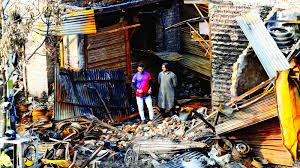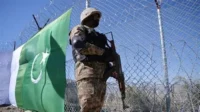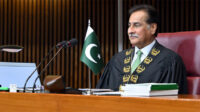India recorded 59 communal riots in 2024, marking an 84% increase compared to 2023, which saw 32 such incidents, according to a report titled Hegemony and Demolitions: The Tale of Communal Riots in India in 2024.
Authored by human rights activists Irfan Engineer, Neha Dabhade, and Mithila Raut, the study is based on reports from leading Mumbai-based newspapers.
Maharashtra accounted for the highest number of riots, with 12 incidents, followed by Uttar Pradesh and Bihar, each reporting seven. The riots resulted in 13 fatalities, including 10 Muslims and three Hindus. The report highlights a troubling trend of religious festivals and processions being exploited to incite violence, with 26 out of 59 riots occurring during such events. This includes four incidents coinciding with the consecration of the Ram temple in Ayodhya in January 2024.
Other triggers included Saraswati Puja idol immersions (7 riots), Ganesh festivals (4), and Bakri Eid (2). The study also identified six riots linked to contested places of worship, as Hindutva groups claimed mosques and dargahs were built over demolished Hindu temples.
The authors criticized the government for disproportionately targeting Muslims in the aftermath of riots, citing actions such as using bulldozers to demolish Muslim-owned properties, implicating victims in criminal cases, and causing significant economic damage. Until September 2024, such demolitions reportedly affected 19 properties in Maharashtra, a mosque in Delhi, a madrasa in Uttarakhand, and thousands of makeshift homes in Assam.
The report also recorded 13 mob lynching incidents in 2024, leading to 11 deaths—9 Muslims, 1 Hindu, and 1 Christian. Seven of these were linked to cow vigilantism, while others were tied to accusations of interfaith relationships and assaults targeting Muslims for their religious identity. The study called into question the state’s narrative of maintaining communal harmony, stating, “The increase in communal riots contradicts claims that India is free from communal tensions and underscores a deliberate use of such incidents for political mobilization.”
The authors urged accountability and decisive action to address the rising communal violence and ensure justice for affected communities.






